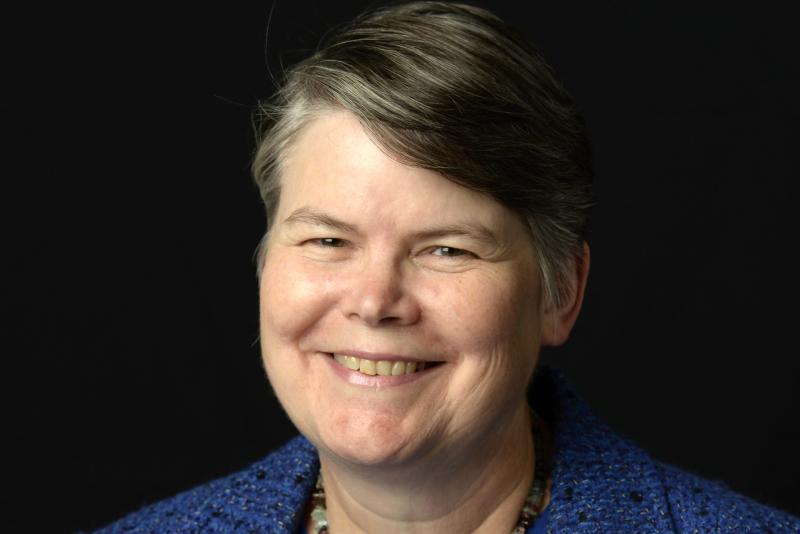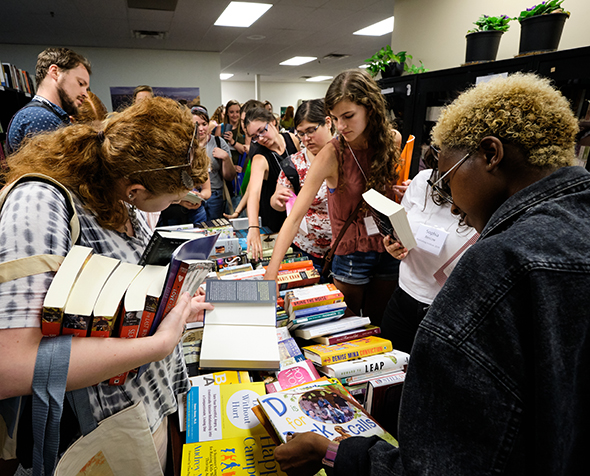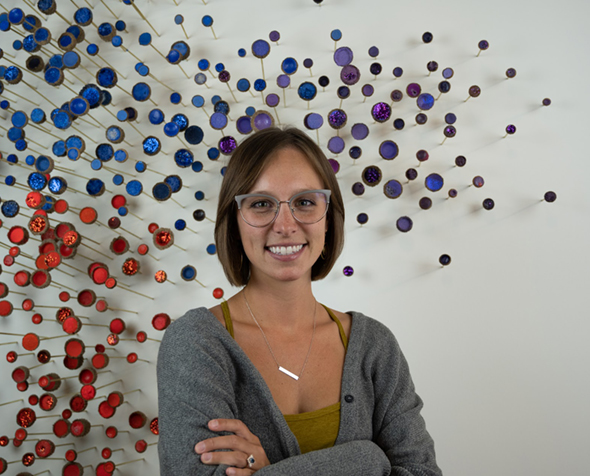Alumna’s Education Sparked Dynamic Career in Foreign Service

Her mother’s Polish-immigrant roots combined with growing up in the depths of the Cold War kindled an early passion for all things international in alumna Lisa Helling (BA ‘77) (JD ‘80).
The self-described studious child who grew up in Denver attended a British-sponsored study-abroad program following her high school graduation, lived in England and took advantage of an opportunity to stay with a French family.
“Being in a foreign environment, where traveling not very far puts you in a very different culture where they speak a different language, had a really big impact on me,” the College of Arts, Humanities & Social Sciences (CAHSS) grad said.
Helling subsequently secured music and honors scholarships to attend the University of Denver beginning in the fall of 1973, where she majored in French and Russian and minored in music.
Several of her CAHSS professors, who were refugees from Eastern-European, Communist countries, imparted “a sort of urgency about making sure that the United States was well represented and defended on the world stage.”
“There was a strategic aspect to studying Russian at the time. It was seen as a way to learn the language of your enemy,” Helling said.
Although she’d envisioned a career teaching a different language, her Czechoslovakian-born Russian Professor Libor Brom encouraged her to study law and find a way to apply her passion for languages as a tool for the greater good.
While attending what is now Sturm College of Law, Helling focused on international law. She also served as editor of the Denver Journal of International Law and Policy and as a director of the International Law Society.
Finding Her Niche in Foreign Service
Following graduation, Helling moved to Washington, D.C. where she practiced law for the next decade, initially in the International Trade Commission and then for a private law firm specializing in intellectual property and international trade.
But eventually she realized she wasn’t using her different languages and international knowledge in ways she’d initially hoped.
Although she had taken the foreign service exam while in law school and didn’t pass, she tried again. “I felt that having worked and practiced law in Washington, D.C. would put me in a better position to pass, and I did.”
While going through the foreign-service training and putting together her “bid list” for her first overseas assignment, someone newly assigned to Warsaw, Poland, unexpectedly quit while still in language training.
Helling was tapped to fill the vacancy as “the only person on their list who had even the tiniest bit of Polish.”
“This was the early ‘90s when the Iron Curtain had just come down. All of Eastern Europe was interested in the United States and we were interested in them. I couldn’t have wished for a better assignment.”
In Warsaw Helling directed the new American Cultural Center, one of many throughout Eastern Europe established by the State Department at the time.
“We created a library of American materials, an exhibit space where we would bring in and display arts and crafts; brought in American dance groups and musicians and hosted programs about democracy, women’s issues and other topics related to Poland’s transition,” Helling explained.
During her first job in Poland, the Soviet Union fell apart and the State Department began establishing embassies in the new republics of the former Soviet Union. Helling’s boss in Warsaw encouraged her to apply for a position to set up a cultural center in Lithuania.
Forging Lasting Cultural, Educational Alliances
Over a long, robust career in a variety of positions in Eastern Europe, Helling continued to focus on what moved her most — cultural and educational diplomacy.
Helling cites helping Poland and other Baltic countries transition from a state- to a private-sector model for supporting arts and cultural organizations as an example of the kind of work that most inspired her.
“You’re working with people in academic, media and artistic fields who are really engaged in developing their society,” she said. “That process of cultural exchange, building relationships and getting people to understand each other and work together constructively was very satisfying.”
But Helling admits that the frequent moves in foreign service life can take a toll.
“Our assignments typically ranged from one to four years,” she said. “It can be very hard on your personal life. But there are enough rewards that people don’t often leave because they can’t take the moves anymore.”
Helling also worked in senior roles with the Fulbright Foreign Scholarship Board and as the department’s liaison to the Smithsonian Institution before retiring from the State Department in 2019. She currently consults with the department’s National Museum of American Diplomacy and serves on the CAHSS Alumni Council.
“[The Alumni Council] is a great group of people from different disciplines, different timeframes, different perspectives, all dedicated to finding ways alumni can be helpful to students, faculty and college initiatives,” she said.
“Throughout my foreign service career, I was very much involved in international education and working with universities. As I look back, I can see that my time at DU was really very formative in how my career developed,” Helling added.
Providing Inside Advice on Landing a Foreign-Service Career
Helling doesn’t hesitate when asked where students dreaming of a career in foreign service should start.
“DU has really excellent study abroad programs,” she said. “It’s so important for students to figure out early on if they like traveling and being in other countries where different languages are spoken.”
Once that’s established, Helling recommends applying for internships with the State Department — either in Washington, D.C., or overseas — which enables students to get a feel for the work to see if it’s a good fit.
Through the State Department’s Fulbright program, students can also apply to become English Teaching Assistants. Designed for students who have just finished their undergraduate studies, the program brings them into foreign countries to assist native speakers who teach English and, in the process, hone their own foreign language skills.
“It exposes them to what it’s like to operate in a foreign country where they may not speak the language, learning how to represent themselves and their country. It’s similar to the Peace Corps which is also a terrific way to find out what this is like.”
Closer to home, DU’s Josef Korbel School of International Studies hosts a State Department Diplomat in Residence who provides advice to all DU students on foreign-service fellowships and careers.
Finally, the National Museum of American Diplomacy educational page provides “a lot of excellent simulations and resources that take you through the skills of diplomacy,” Helling said. “Those are the kinds of things that will help you prepare for taking the foreign service exam.”
Find additional information on foreign-service careers here.





